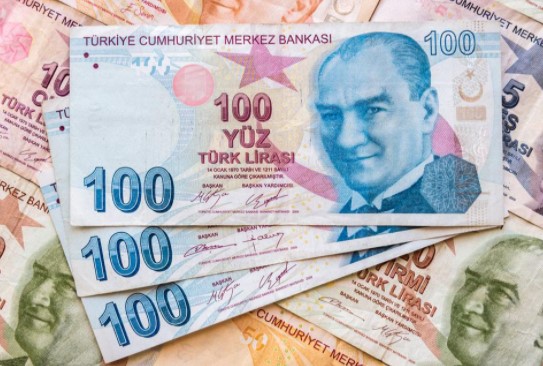Although there is still a lot of attention on the largest currencies like the US dollar and the Euro, the Turkish Lira is one of the emerging markets currencies that very active recently. Multiple structural issues with the Turkish economy had pushed pressure on the currency since the 2008 financial crisis, but things had taken an even worse turn in recent weeks.

# Rising Inflation
It seems like Turkey had entered a vicious cycle, with high inflation as one of the main reasons why investors are selling TRY aggressively against USD or Euro. USDTRY is trading around 8.35 continuing its parabolic rise, as tensions between Turkey and France accelerated in the past few weeks. High inflation fuels currency selling, which creates more inflation, and since the central bank is politicized now, rate hikes are ruled out, due to their impact on economic activity.
# Balance of Payments crisis
High dollar-denominated debt is not the only major structural issue of Turkey. International investors are also worried about a balance of payments crisis as well as diminishing foreign reserves of the central bank. Goldman Sachs is estimating that gross currency buffers had dropped by more than a third this year.
On top of that, it is important to note that the Turkish central bank had not just used its own reserves to keep the currency from tumbling even further but borrowed USD from local banks to buy TRY.
Based on the currency performance over the past few months, it is clear that the FX intervention had failed and now investors will be looking at other factors to stop selling TRY – the most important having to deal with geopolitics.
# Geopolitical risks
During the summer, the conflict with Greece over areas in the Mediterranean had been in the spotlight, but for the past few weeks, a new one with France is brewing. Although on religious matters, this can turn out to be more complicated, as violence in France is already increasing and the Turkish President already demanded its citizens to spot buying French goods.
Turkey is still part of NATO but the gap with the Western World continues to widen. However, as the economy continues to be dependent on Western inflows, TRY could continue to fall in the months ahead regardless of extreme overbought conditions. Risk currencies are not so active currently, which is why some FX traders are shifting towards low-liquidity currencies, adding to the current order flow imbalance in TRY and other emerging markets currencies.
